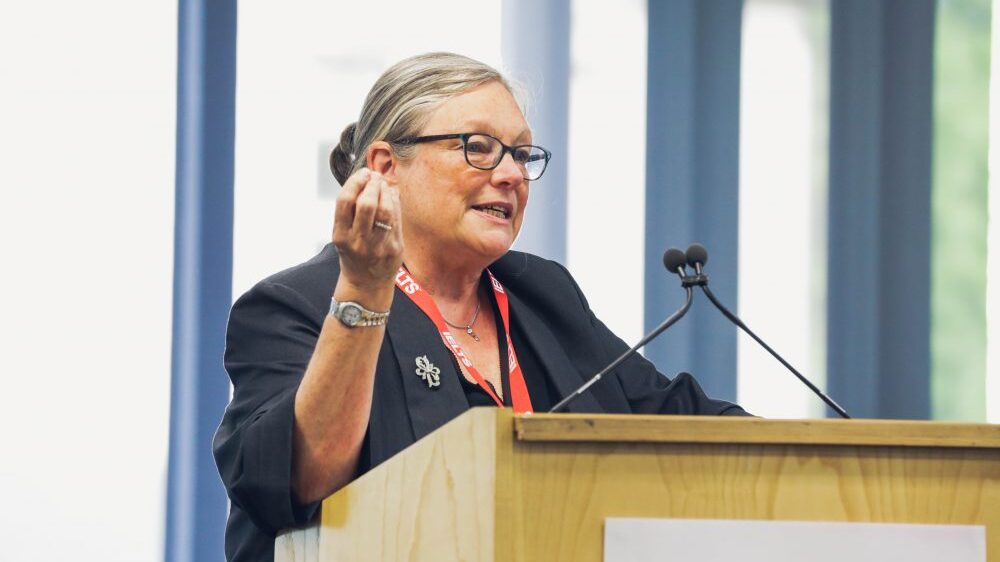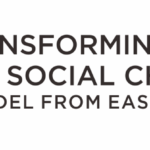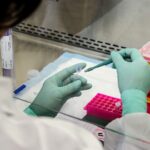
Evolving to support equitable knowledge ecosystems in 2022 and beyond
At the end of last year Jo Beall handed over the reins as Chair INASP’s Board of Trustees to Lizbeth Navas-Aleman. As we start a new year with a new board and new approaches to working and delivering INASP’s strategy, Jo shares some reflections from her six years with INASP and her hopes for the coming year and beyond.
What have been some highlights over recent years?
Over the past six years there have been some major changes and successes in INASP’s programme work. Perhaps most significant for me from a Board perspective is how the organisation has evolved.
INASP began in 1992 as the philanthropic outreach of the publishing industry with a real concern to level the playing field in terms of the conduct and dissemination of global research. Over time, that vision has expanded and deepened, creating an organisation that is committed to putting research at the heart of the development agenda through enhancing the capacity of Southern researchers, especially those regularly overlooked, often women; and addressing the take up and use of research by policymakers.
The time came again in recent years for another shift, from a development mindset to one of global partnership in a digital age. This has been a challenge the organisation has met head on, as can be seen by the new strategy.
But above all, as I reflect on my six years as Chair of INASP’s board, it is the spirit of its people that will stay with me. Throughout the evolution of the organisation, the characteristics of being professional, questioning, caring, responsive and living the organisation’s values have shone through.
The past year or so has been challenging for the whole development sector and for INASP. What does this mean for INASP in 2022 and beyond?
As I mentioned, INASP has done great work throughout its history but has also evolved as the situation it works within changes. With changes in development funding and the COVID-19 pandemic shifting priorities of both funders and partners, it has been clear for the last few years that the context is changing again and INASP needs to move forwards in ways that remain relevant and viable.
Awareness of this changing context guided INASP’s 2020-2025 strategy and it is guiding the new shape of INASP. In 2022, associates around the world who are expert in their specialisms and in their local contexts will work in coalition with INASP, supported by a smaller UK-based team of INASP staff, to continue to work to support more equitable research and knowledge ecosystems.
The new Board members reflect a strong commitment to Southern leadership for INASP; why do you see this as important?
Every Board has something to offer but every Board also has to refresh itself. The Board I inherited was heavy on academic publishing and university leadership. Over the past six years it has gradually morphed into one more au fait with higher education and research in the area of international development. We also increased our capabilities to support the organisation with more expertise in fundraising and organisational development.
Our Board has always had good representation from the global South but it became clear that this would need to increase, indeed dominate, if INASP was going to be true to its ambitions as a global network. That is why I was delighted to hand over to the new team who not only represent different regions of the world but also bring to the table their areas of specialist expertise to share.
What do you predict for INASP in 2022 and beyond?
Looking ahead, the challenge facing all international non-governmental organisations is to diversify their funding base and to embrace the digital age without losing their personal connectivity or the human touch. The pandemic has taught us we can do much remotely without further harming the environment and this should be part of future thinking, as should the development of MOOCs and other forms of digital research outreach. But I hope the warmth and tangibility of real human contact will still be possible, not so frequently as before perhaps but often enough to render seeing each other on screens more heartfelt and real. I believe INASP will go from strength to strength as a network of people committed to research equity and I hope that, as it does so, it retains its heart and its values, currently so patently evident in its people, both staff and associates.
Interview by Siân Harris

 Previous Post
Previous Post Next Post
Next Post


